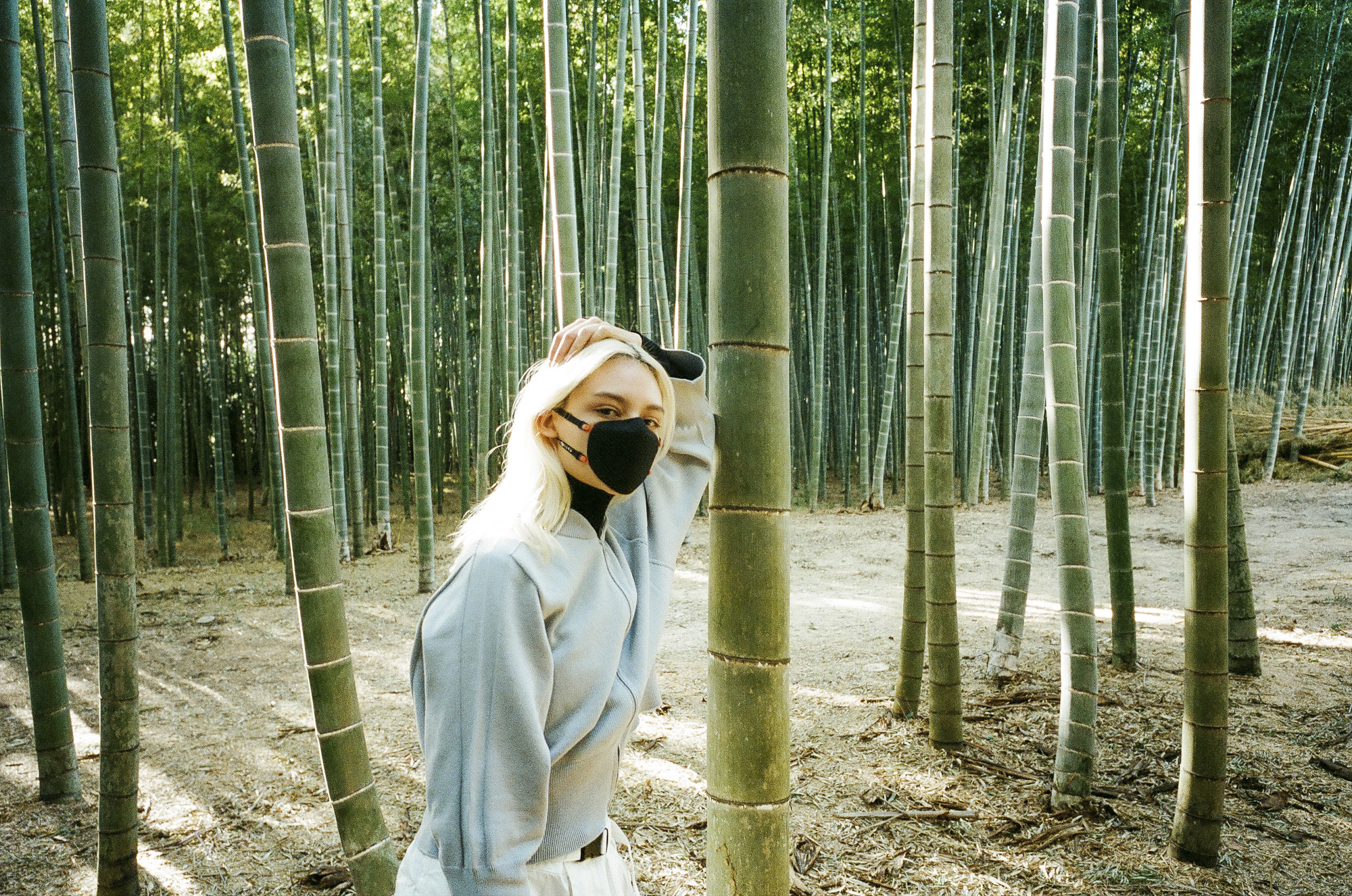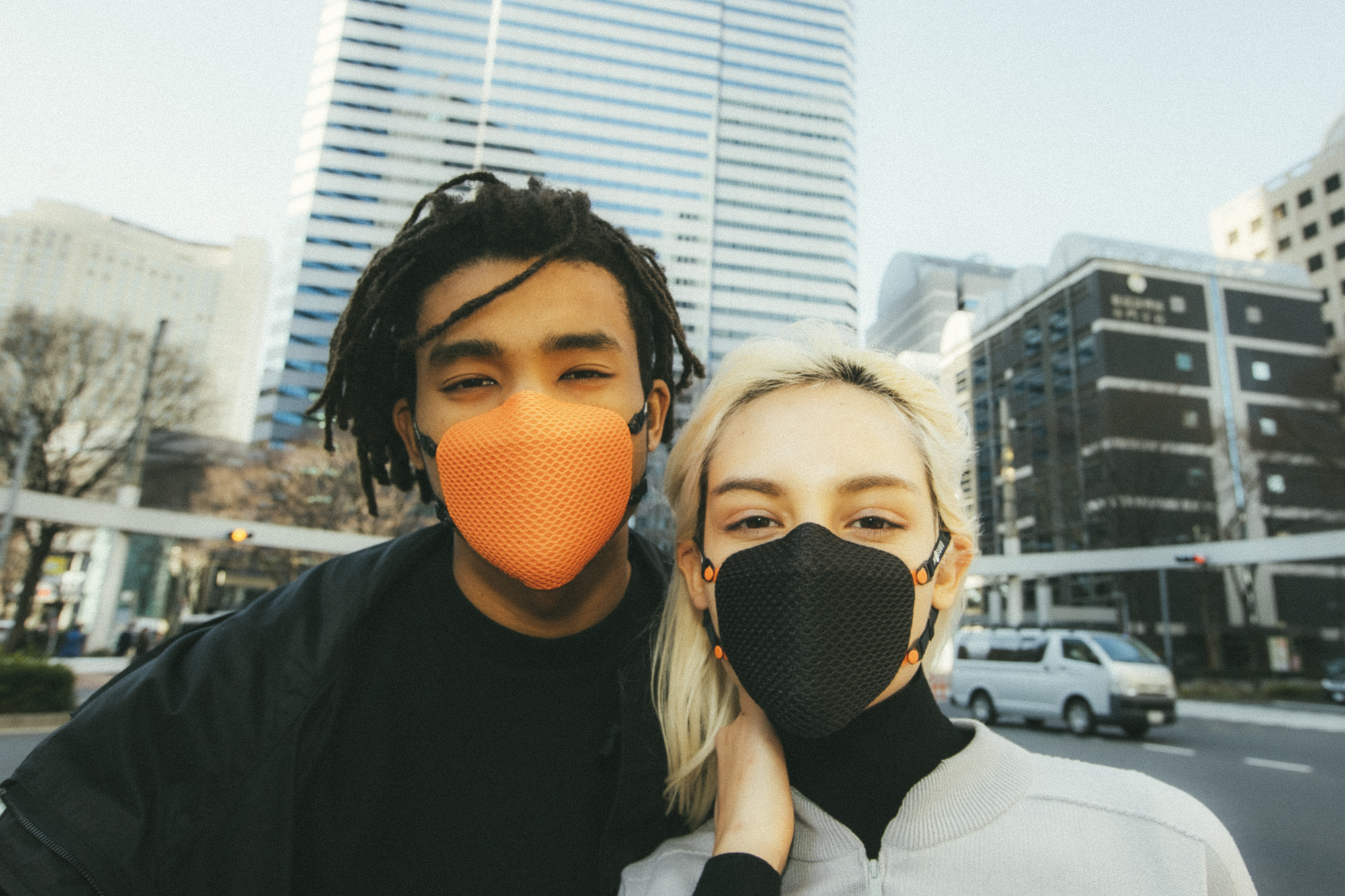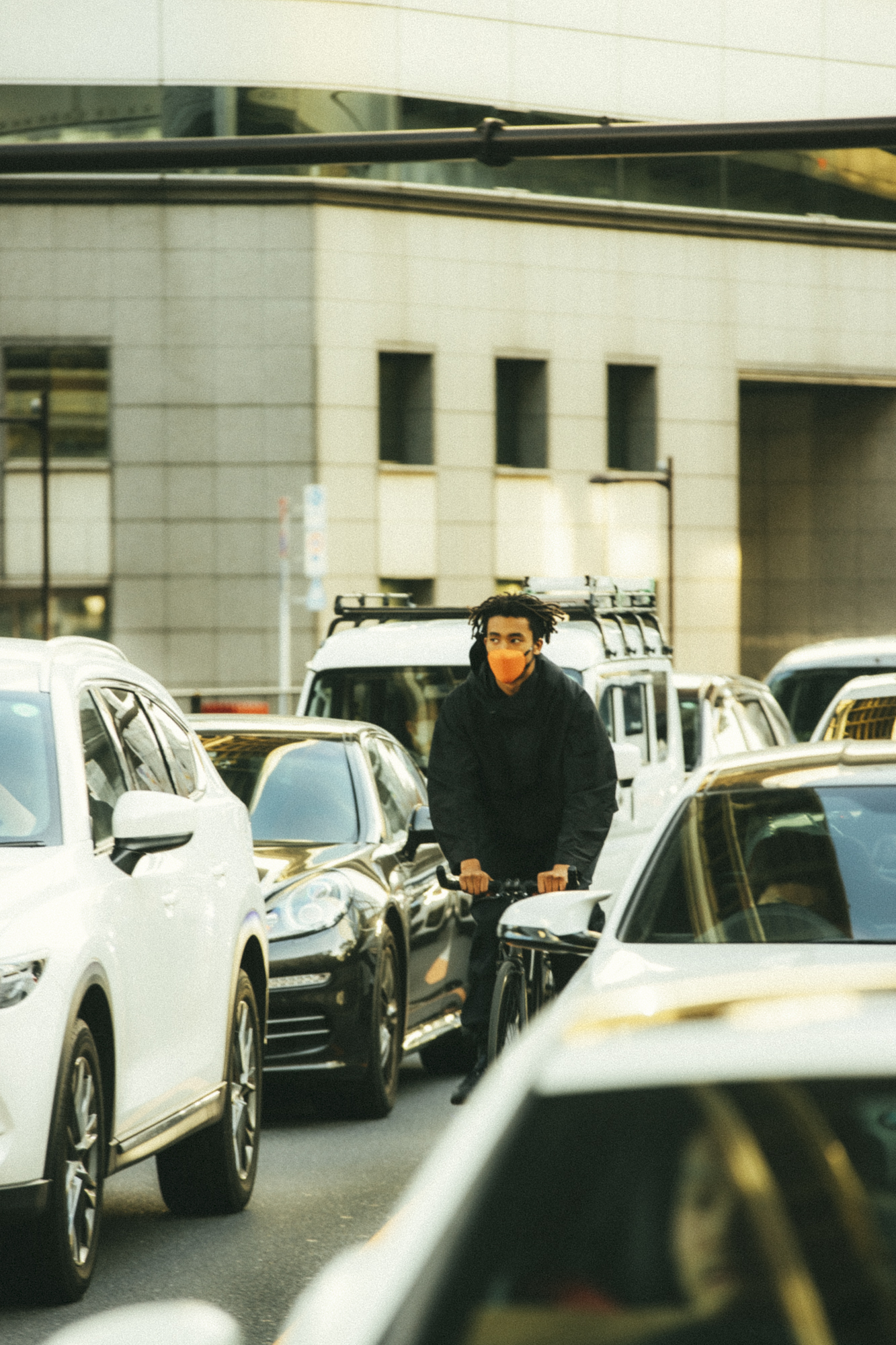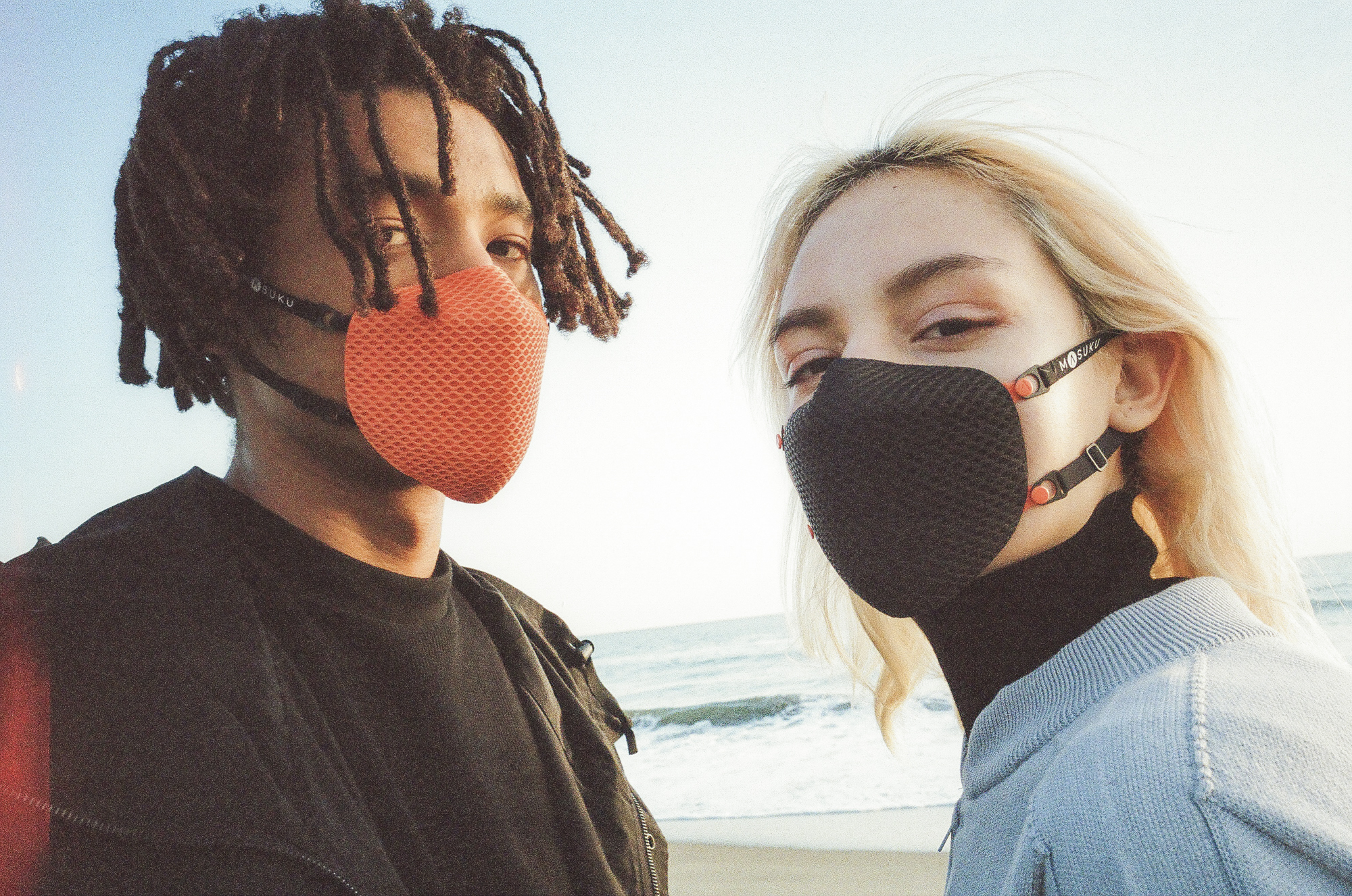As you damn well know, in the West, face masks have risen from relative obscurity to become one of the most ubiquitous accessories of our time. Granted, calling face masks ‘accessories’ may ring a little odd given that their primary function is to hamper the spread of deadly pathogens. Still, as they’ve become a feature of our day-to-day lives — and outfits — more and more importance has been placed on whether or not they look chic.
This wave of COVID-look-consciousness has prompted a range of top-tier fashion houses to enter the face mask game, resulting in an impressive range of luxe options. Where far less attention has been invested, however, is in matching these aesthetic leaps forward with similar headway in technological innovation. Enter Masuku, the recently launched mask label born of a collaboration between design and technology company Pentatonic and Natalia Vodianova.
While the venture may have gained white-hot relevance in the current global context, Masuku actually started life four years ago. Borrowing its name for the Japanese name for ‘mask’ — a nod to the prevalence of mask-wearing in the East Asian country as a marker of social responsibility and mutual respect — it was born of Natalia’s realisation of the perverse attitude that so many of us adopt with respect to the air we breathe. “We understand very clearly that we should filter the water we drink, and that we should wear SPF and sunglasses to protect ourselves from the sun,” the Russian supermodel observes, “but we inhale something like 60 gallons of air every hour, and we don’t even think about filtering that! It’s quite insane when you really start to think about it.”
Insane it is indeed, but equally so is the environmental impact exacted on the planet through the irresponsible disposal of single-use plastic masks, an issue that has snowballed to become one of the most critical environmental crises born of the pandemic. “Most masks are completely un-recyclable, taking up to 500 years to disintegrate,” says Natalia, noting how she made sustainability a cornerstone of the venture from the get-go. “I didn’t want to just make a statement about something that didn’t address the issue in a sustainable way.” Here, Natalia shares just how she and her partners at Pentatonic have gone about doing that, the story behind how it all got started, and the cutting-edge technology that sets Masuku apart.

Where does the story behind Masuku begin? It predates the pandemic by quite a while, right?
That’s right, it actually all started back in 2017. I was on a trip to Japan with my four children and Timon Afinsky, my business partner. We spent a week in Tokyo, where we encountered people wearing masks on the street. We saw them in the same way that you might see a white t-shirt — a blank canvas that offered an opportunity for a message. We also visited a disaster museum — it was a bit like a natural history museum, but with a greater focus on global natural events from across time. While there, we learned that there is a clear, regular pattern of viruses emerging, so I said to Timon that masks were something we should look into. With very little research, we discovered that pollution and poor air quality is the biggest killer globally — and it’s not something you hear much about! People talk about how cities like Beijing, Shanghai and Delhi suffer from air pollution, but very rarely do we hear about how serious the situation is in London or Paris, for example. We realised that there was a general lack of understanding around the positive impact that mask-wearing could have on our lives, and we wanted to use fun, fashion and beauty to encourage people to wear them!
How did Pentatonic get involved?
Johann Bödecker and Jamie Hall, Pentatonic’s founders, were speaking at the Prada Foundation at the same conference as Asya Zalogina, the president of Naked Heart Foundation [Natalia’s charitable foundation]. She suggested that we meet, and I immediately thought they could be the right guys for us to collaborate with. We told them about our idea for the mask, and that we needed a filtering technology for it. Incredibly, that’s one of the things they’d been working on, so we joined forces and began refining Masuku together.

So what is it exactly that sets Masuku apart from other face masks?
Our filtering technology! It’s incredibly sophisticated. Most filters, even the most effective ones, are spun in a way that, if you were to look at them beneath a microscope, would look something like overcooked spaghetti that’s gone cold and has all glued together. With Masuku, however, we electrospin a substance that is 100 times finer than a human hair in an extremely precise way — almost like a spider’s web. They leave enough space for air to pass through while remaining complex enough that everything that needs to be trapped is caught. With respect to the mask’s frame, we’ve worked with data from 1000s and 1000s of faces around the world to find a shape that fits 70% of faces worldwide. We’ve really put a lot of effort into understanding what you need to ensure the perfect seal around the face, and that the comfort level is impeccable. It’s so light, in fact, that you often forget you’re wearing it! Also, because it’s perfectly sealed, it also means that if you’re wearing glasses, they’ll never fog up!
You’ve also placed real focus on the environmental footprint left by the masks.
Yes, that’s right, and that’s another really unique feature. If one were to drop a filter by the side of the street or in the forest, it would completely disintegrate within two weeks — and it doesn’t even require specific conditions to biodegrade! So that’s Masuku One, and then we’ve also just launched Masuku Daily, which we’re over the moon excited about. Walking through any major city, you’ll probably have seen blue single-use masks littering the streets. An estimated 3.4 billion of them are currently being thrown away every day, and it’s a volume of waster that our planet just can’t support, especially since they aren’t recyclable. Masuku Daily looks just like your typical white surgical mask, but it’s 100% biodegradable, and offers much better filtration, better comfort, and is completely friendly environment-friendly.
This is the first in a series of products for Masuku. What can we expect from you in the future?
We’re looking into lots of different opportunities, especially in the space of collaborations with brands which, for example, want to make a mask part of a total look. A really interesting part for me is that whatever you wear on your face becomes part of beauty. That opens up lots of potential, whether it’s infusing scents into a mask to make the experience of wearing one more pleasant or more meditative, or whether you want to use a mask as a white canvas for a message or to express your identity to the world.
Ultimately, the pandemic has had a real impact on our lives, and people — and governments — now understand the benefits of mask-wearing. I believe that certain people will continue to wear masks forever, but we need to ensure they’re made in a way that’s friendly to both the planet and to humanity. Our motto is ‘love air’, and the idea behind Masuku is that we’ll be here we’re not needed anymore. We’re striving for that future, but in the meantime, we want to encourage everyone to love the air that they breathe, to protect themselves, and also ensure that we aren’t polluting the planet while doing so.

